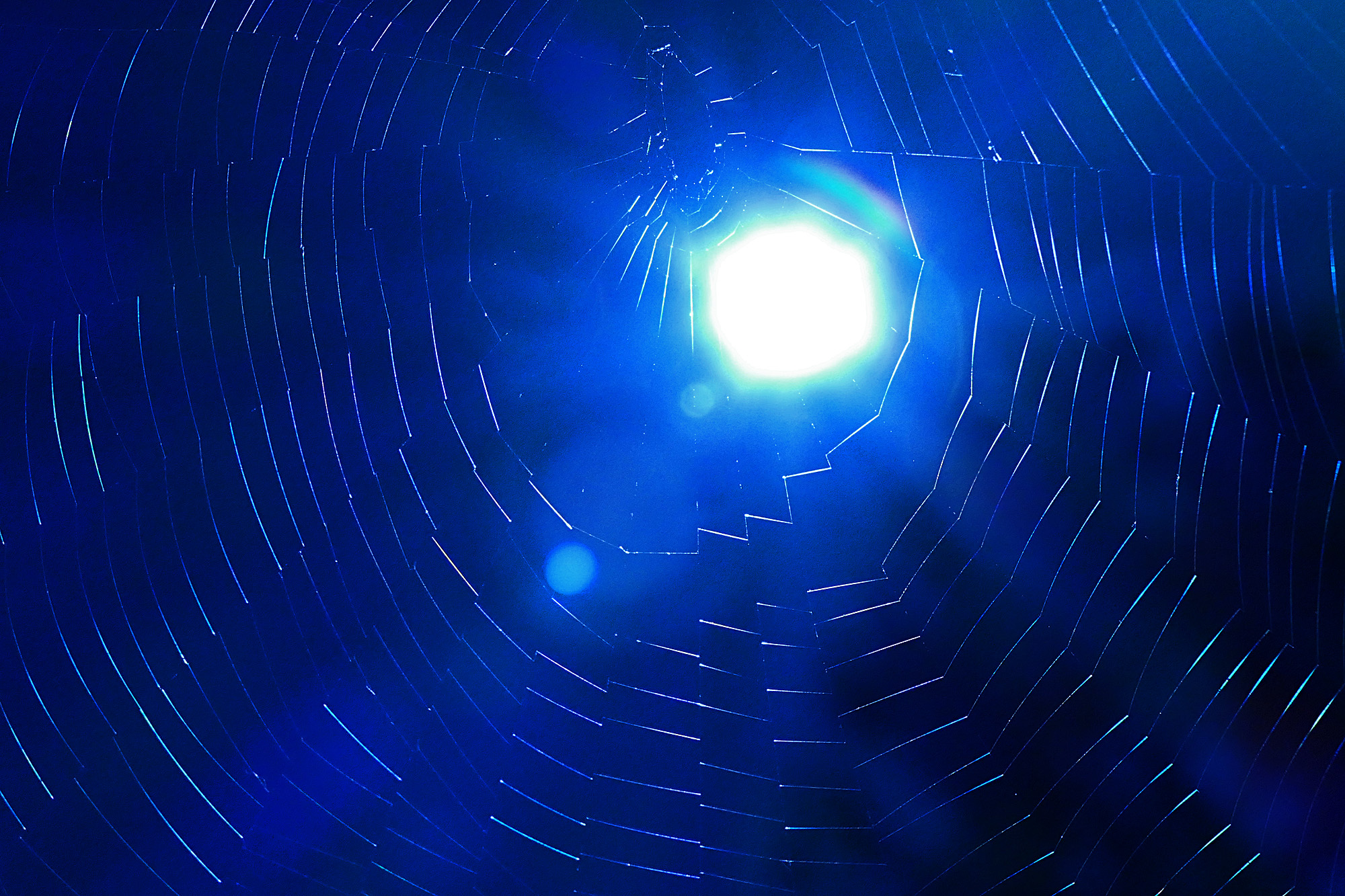Sometimes accidents produce interesting results. A few days ago Marian pointed out a spider web in our neighbor’s yard, so I came over and took a few pictures. Then I started diddling around to get something different. This meant leaning over the fence, pointing the camera in an uncomfortable direction, and then manually focusing—all while trying to keep my eye on the LCD screen since I couldn’t use the viewfinder.
Unfortunately, one of my few complaints about my camera is that it’s really easy to accidentally change the white balance. And that’s what happened here. While I was contorting myself, the white balance got changed to some weird custom setting that defaults to tungsten, which means outdoor light becomes very, very blue. And of course, the sky in the background was already blue. So I ended up with a picture of a spider web that’s a very bright, intense blue.
That’s not what I was after, but it’s kind of mesmerizing in its own way.














